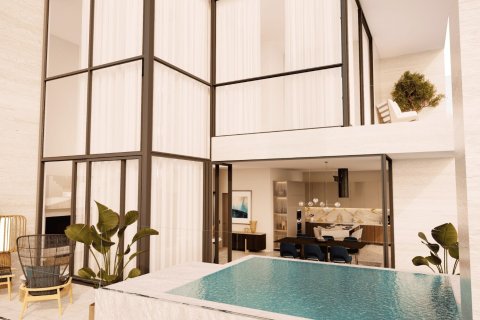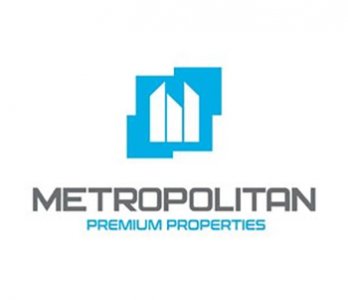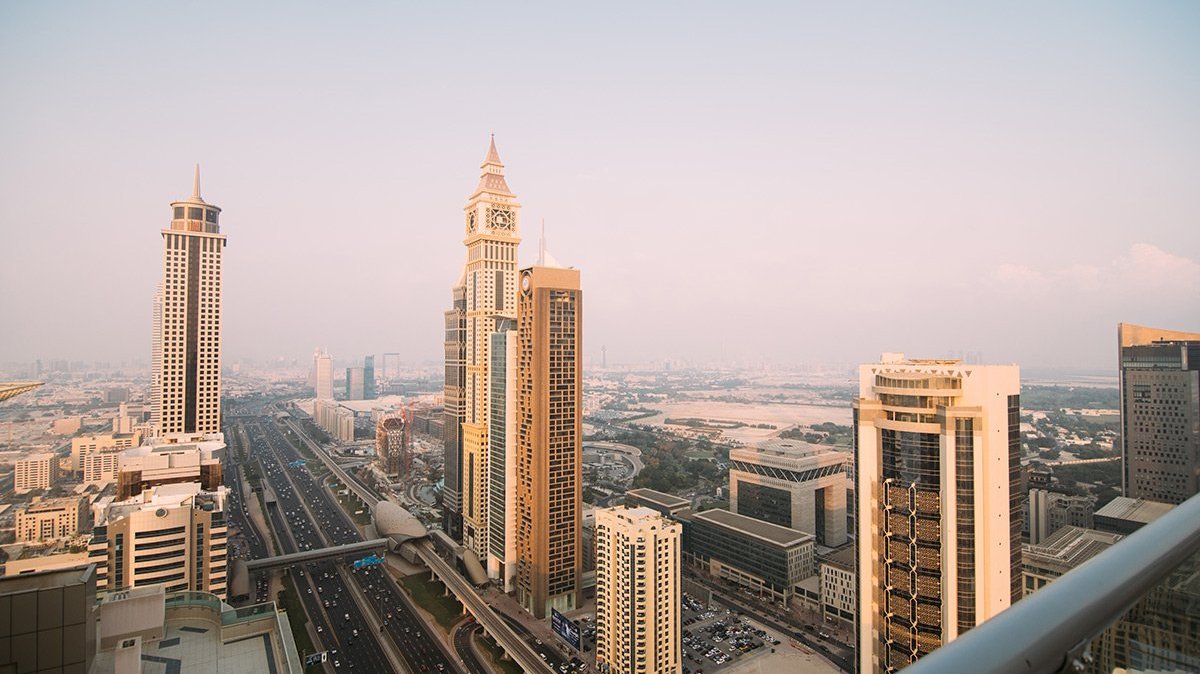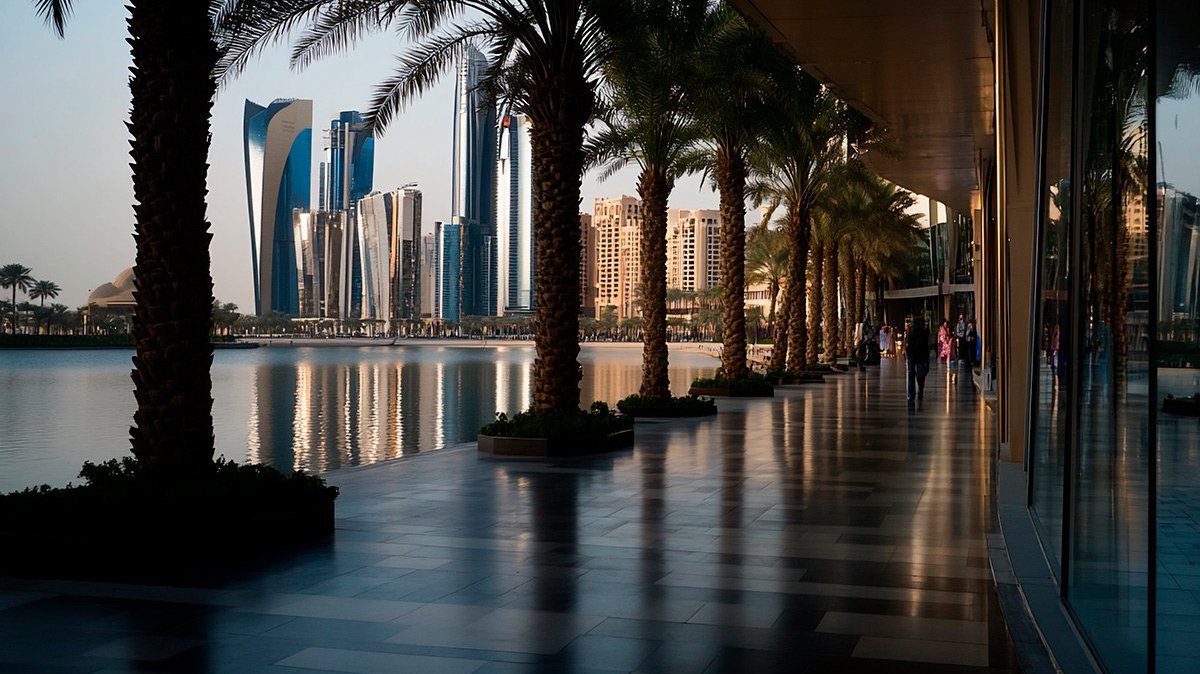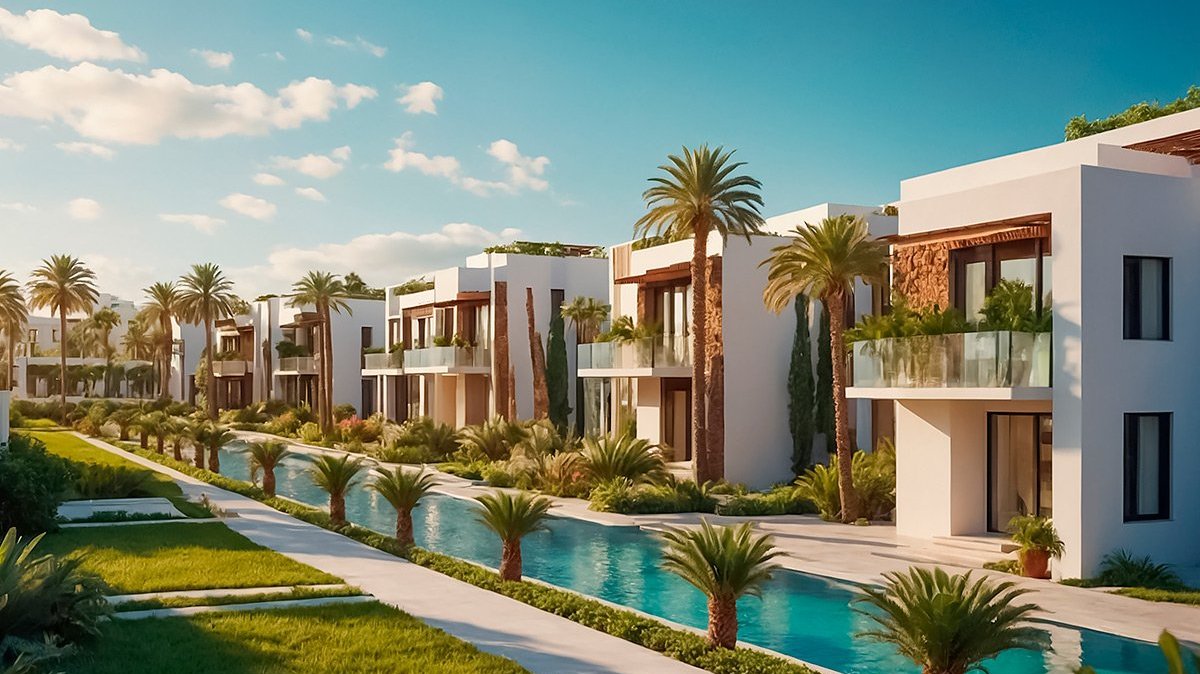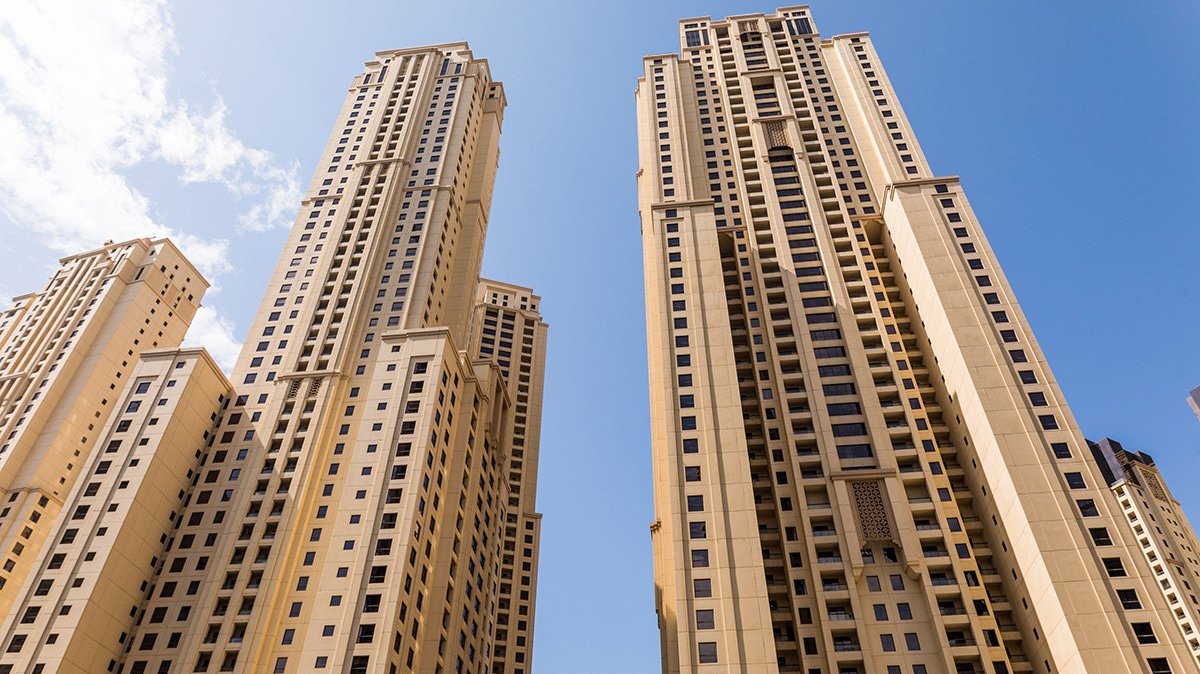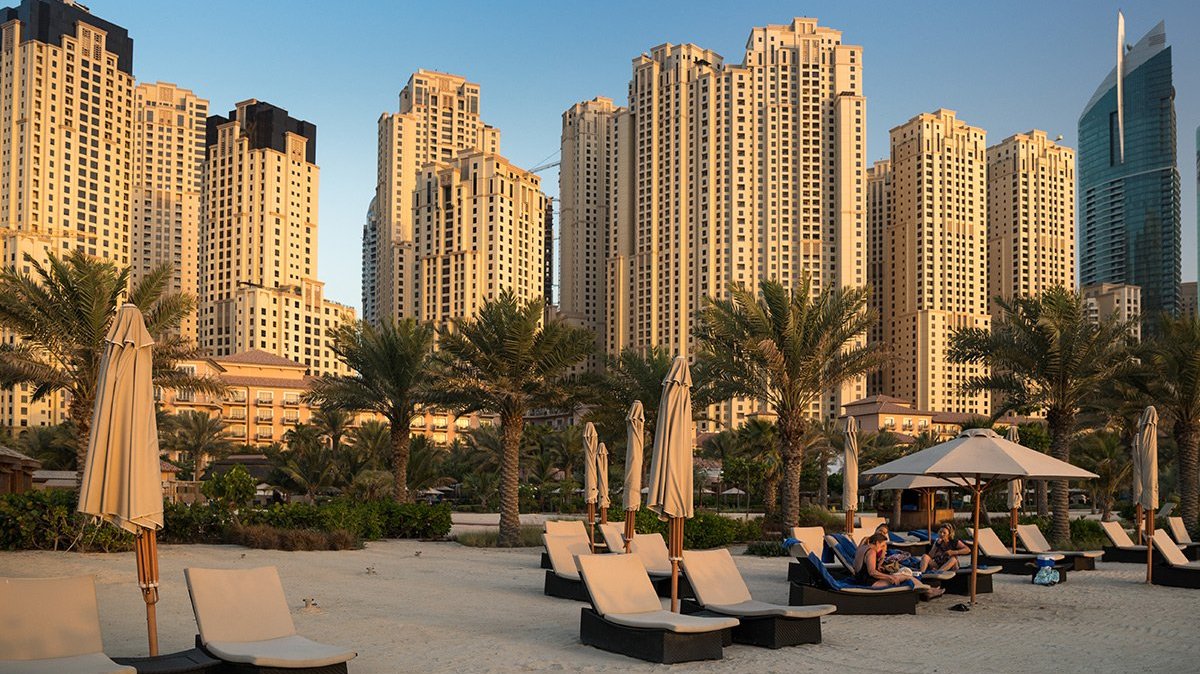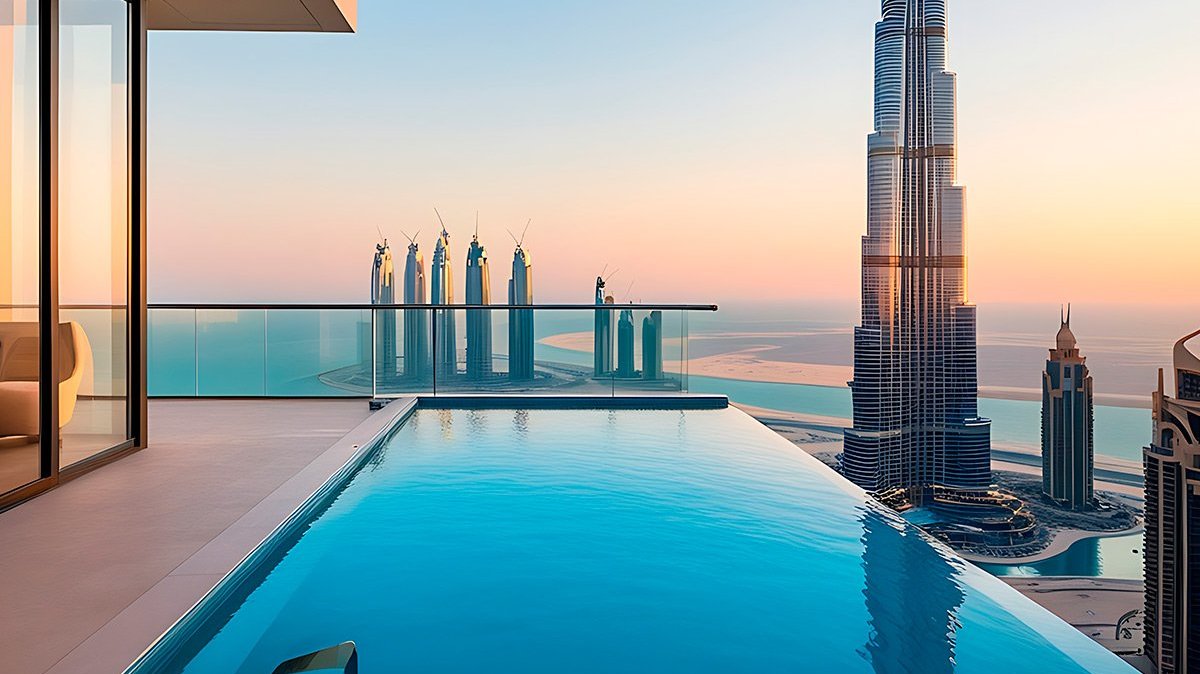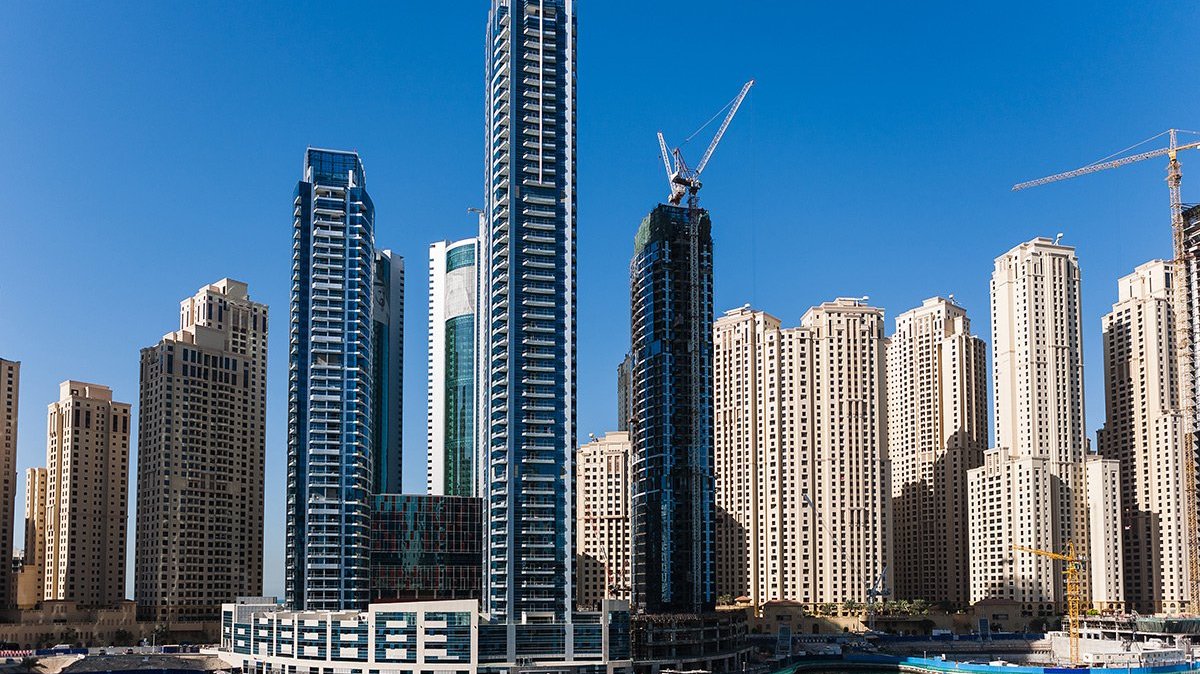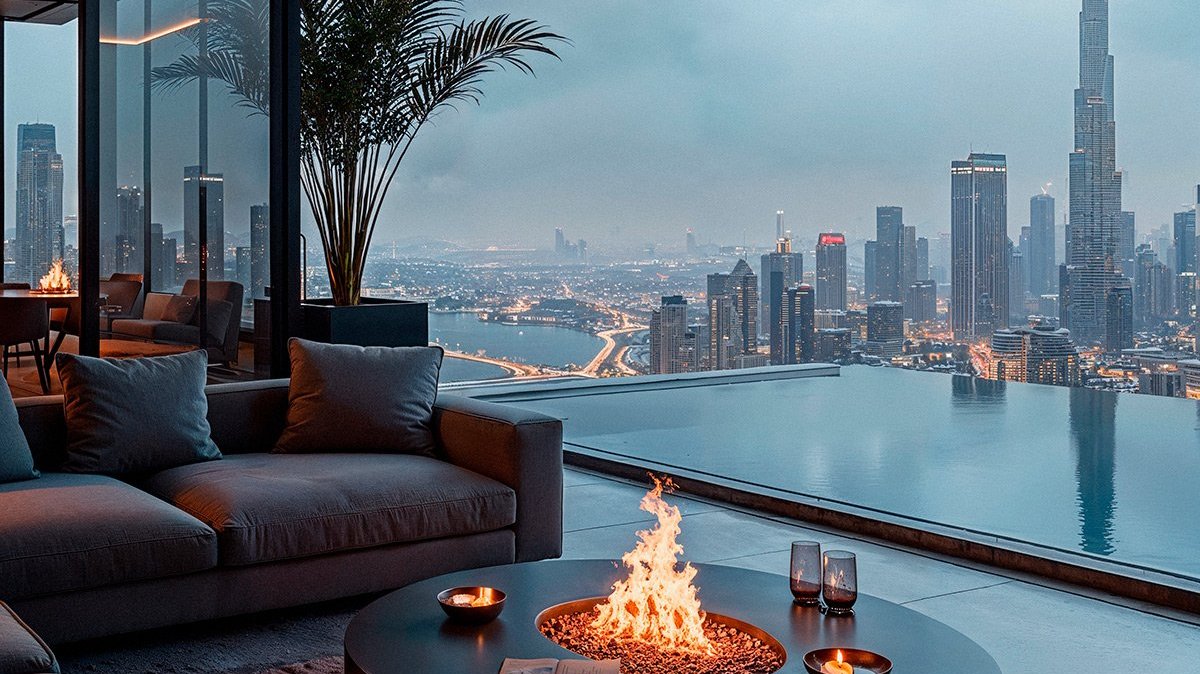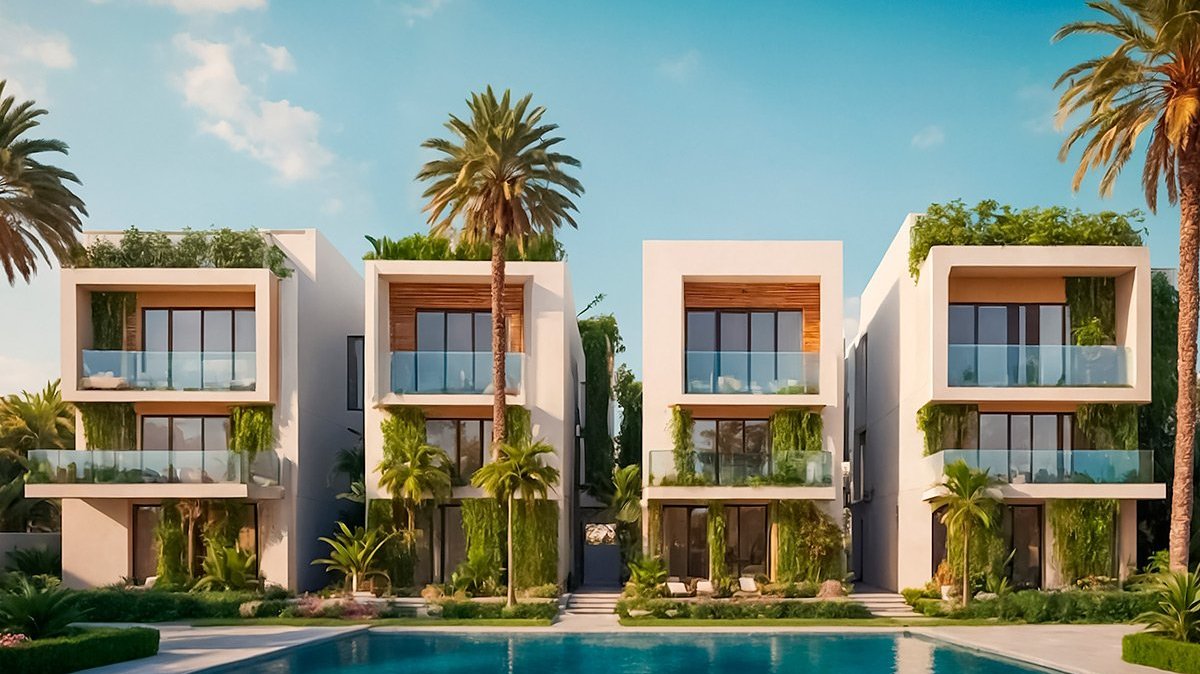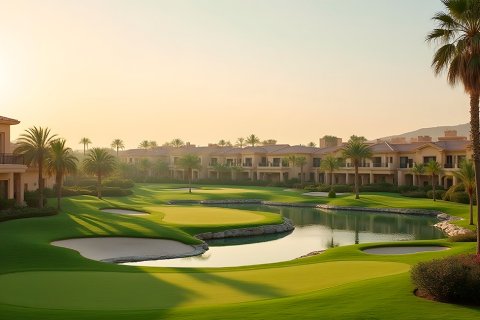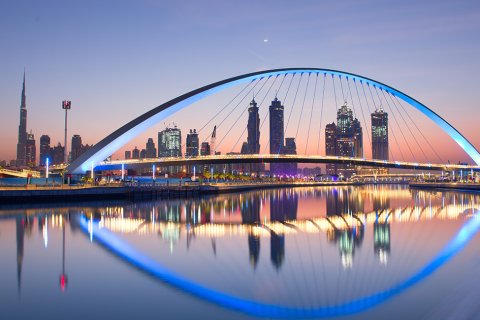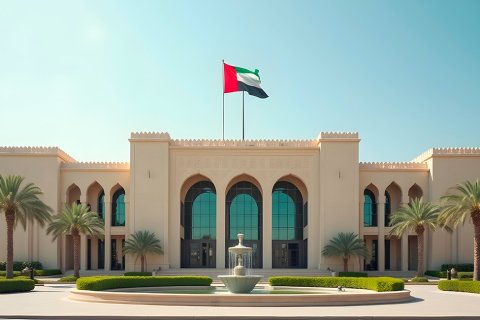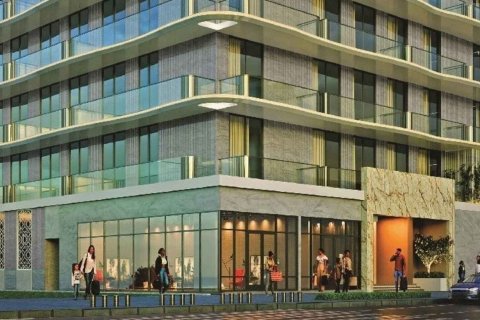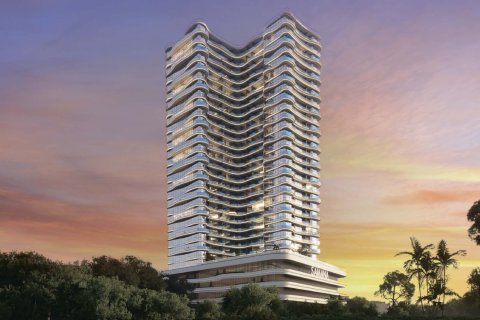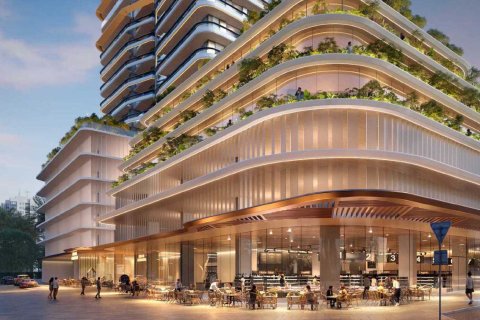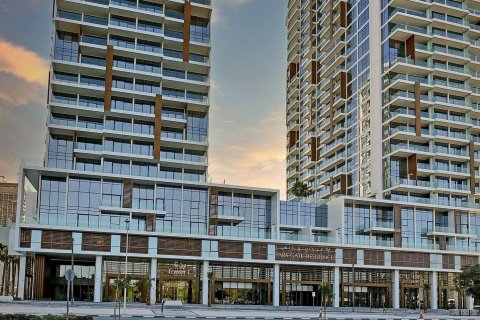
In 2025, purchasing real estate in Dubai for foreigners remains a popular choice, offering several key advantages:
- A method to preserve and grow capital – the average property value has increased by over 50% in the last four years;
- The chance to earn high, stable returns – in popular locations, rental yields can surpass 20% annually;
- The opportunity to find a comfortable home in one of the world’s most vibrant cities.
Dubai’s distinctive legal framework, lack of income tax and high safety standards (ranked third worldwide in the 2025 Numbeo Safety Index) make its property market particularly appealing to international buyers.
However, before finalising a deal, it’s vital to understand the main conditions for buying property in Dubai: where foreigners can buy, how property rights are registered, what transaction costs are involved and what specific factors should be considered when renting or reselling a property.
Content
Benefits of buying real estate in Dubai
| Key advantage | Description |
|---|---|
| Attractive investment returns | Dubai real estate offers some of the highest yields globally: up to 8% annually for long-term rentals and up to 15% for short-term rentals. In luxury tourist areas, returns can exceed 20%, allowing investors to recover their capital in under five years. Property values have steadily increased (8.1% in 2021, 21.1% in 2022, 14.2% in 2023 and 11.6% in 2024). Thanks to high liquidity (average time on the market is 40–60 days), owners can sell quickly. Demand is driven by infrastructure growth, government incentives, population growth (+6.3% YoY as of May 2025) and over 18,000,000 tourists in 2024. |
| Residency through investment | Buying property worth AED 750,000+ (approx. USD 204,000) grants eligibility for a 2-year UAE residence visa. Investments from AED 2,000,000 (approx. USD 544,500) qualify for a 5-year Golden Visa. Residency includes benefits such as legal stay, bank account access, healthcare and a driver's license. It also allows family to join (spouse, unmarried children). Applies to all property types—residential, commercial, completed or under construction. Residency is renewable as long as the property is owned. |
| Developed transportation and social infrastructure | Dubai features excellent infrastructure: metro links major areas (e.g., Marina, Business Bay, Downtown), with buses, trams and water taxis also available. Residential areas include international schools, clinics, parks, supermarkets and fitness centres. The city offers top attractions like Dubai Mall, Mall of the Emirates, IMG Worlds of Adventure, Dubai Parks and Resorts, museums, beaches, golf courses and yacht clubs. Dubai also hosts global events such as film festivals, concerts, art biennales, Formula 1 and UFC. |
| Legal protection and digital transactions | Transactions are regulated by the Dubai Land Department, with ownership recorded in an official registry and confirmed with a Title Deed. Online platforms like REST enable remote registration, legal verification and payment. Buyers can review property history, developer credentials and market prices. Strict regulation reduces fraud risk and ensures a safe environment for foreign investors, including those purchasing remotely. |
| Flexible developer payment plans | Developers offer interest-free instalment plans, especially for off-plan properties. For example, buyers of Sobha, Danube or Emaar projects may pay only 10–20% upfront, with the balance due upon completion. Some plans allow up to 50% to be paid post-handover, easing financial pressure and enabling rental income to cover payments. This model is especially attractive to investors focused on resale or immediate rental post-handover. |
How to buy real estate in Dubai: Step-by-step guide
“Buying real estate in Dubai follows a clear and transparent process, but it requires careful attention to local laws and market specifics. Anyone asking how to buy properties in Dubai should understand the key steps in a transaction and prepare in advance for all logistical matters. A well-informed approach minimises risks and saves time,” explains Marina Sheludko.
The process of buying real estate in Dubai:
- Define your purpose and budget.
Begin by establishing your reason for purchasing the property: whether it is for personal use, rental income, resale or long-term investment. This helps determine the appropriate type of property and location, as well as the desired level of infrastructure and amenities. Subsequently, create a budget that includes not only the purchase price but also all additional costs, which should be planned for in advance. - Choose a property and verify the developer or seller.
Once your goals and budget are defined, start searching for property. Buyers can opt for off-plan properties (from developers) or resale units (from current owners). If purchasing during construction, it’s vital to verify the developer’s reputation, history of meeting deadlines and all necessary permits. For ready-to-move-in properties, ensure legal clarity and check for any unpaid service charges or utility debts. - Sign the preliminary agreement.
Once the property is selected, both parties sign a Memorandum of Understanding (Form F or MOU), which outlines the key terms: price, payment schedule, responsibilities and handover date. At this stage, the buyer also pays a deposit, held in escrow until the transaction is finalised. - Obtain a No Objection Certificate (NOC) from the developer.
If the property is located in a building managed by a developer, the seller must obtain an NOC confirming that there are no outstanding dues and that they are authorised to sell. This document is essential for the registration process and is typically arranged by the seller, with both parties coordinating the procedure. - Sign the purchase agreement and register with the Dubai Land Department.
Once all documents are in order, the parties visit the Dubai Land Department to sign the final sale agreement. At this point, the remaining balance is paid and all legal fees and charges are settled. The deal is officially registered in the property registry. - Receive the Title Deed.
After registration, the buyer receives the Title Deed—an official certificate of ownership. For properties under construction, an interim OQOOD certificate is issued, followed by the Title Deed upon completion. If a mortgage is involved, the deed will indicate the bank’s lien. All records are stored with the Dubai Land Department. - Connect utilities.
The next step is to register with utility providers such as DEWA (water and electricity) and Empower (district cooling). Internet, TV and other services can also be set up. Usually, a copy of the Title Deed and the owner’s passport are required. - Property management and leasing.
If the property is bought for rental purposes, the lease must be registered through the online Ejari system. Owners may also sign a contract with a property management company to oversee maintenance, source tenants and handle financial reporting. This is particularly convenient for overseas investors.
Additional costs when buying a home in Dubai
Transaction-related expenses typically range from 4.5% to 10% of the property value. These may include:
- Dubai Land Department fee – 4%
- NOC fee – AED 500 to AED 5,000 (approx. USD 136 to USD 1,360)
- Title Deed issuance – AED 250 (approx.. USD 68)
- Ownership registration fee (for both apartments and villas in Dubai):
- For properties under AED 500,000 (approx. USD 136,000): AED 2,100 (approx. USD 572) + 5% VAT
- For properties over AED 500,000: AED 4,200 (approx. USD 1,144) + 5% VAT
- Mortgage registration fee – 0.25% of the loan amount + AED 290 (approx. USD 79)
- Bank mortgage processing fee – around 1% of the loan amount + 5% VAT
- Property valuation fee (required for mortgage approval) – AED 2,500 to AED 5,000 (approx. USD 680 to USD 1,360) + 5% VAT
- Life insurance (mandatory with mortgage) – 0.4–0.8% annually
- Agency commission – approx. 2% of the purchase price + 5% VAT
- DEWA connection fees – AED 2,000 (approx. USD 545) for apartments or AED 4,000 (approx. USD 1,090) for villas
- Annual service charges for building and community maintenance, based on the RERA service fee index
- Property insurance – approx. AED 1,000 (approx. USD 272), depending on the value of the asset
Restrictions for foreign buyers
Foreign nationals can buy residential and commercial property only in areas officially designated for foreign ownership. These areas are specified by a decree from the emirate’s ruler and approved by the Dubai Land Department. Outside these designated zones, purchase is not allowed—only long-term lease agreements (up to 99 years) are available.
Freehold zones accessible to foreigners include Dubai Marina, Downtown Dubai, Palm Jumeirah, Business Bay, Damac Hills and other rapidly developing communities. This list is regularly updated as the city continues to grow and expand.
Tax considerations for foreign buyers
The UAE is recognised for its stable and transparent tax environment. Changes to tax laws are infrequent and usually announced well ahead of time. Foreign buyers of villas and apartments in Dubai should keep the following points in mind:
- No rental income tax. The emirate does not tax private individuals on income from rental properties, making Dubai investments especially attractive compared to most European and CIS countries.
- No capital gains tax. When selling a property, owners are not liable for capital gains tax, even if the asset has increased substantially during the holding period.
- No annual property tax. There is no yearly real estate taxes in Dubai, unlike in the US or certain European countries. This significantly reduces ongoing costs for owners.
Tips for foreign buyers
Foreign nationals asking what you need to buy real estate in Dubai should be aware of certain local legal, business and market nuances. To minimise risks and ensure a smooth process, consider the following recommendations:
- Work with trusted professionals. Purchasing residential or commercial property requires the assistance of experienced professionals—licensed agents, legal advisers and consultants. This is particularly vital for overseas buyers, as local procedures may differ from those in their home countries. A trustworthy expert will help you select the right property, organise viewings, ensure legal compliance and prepare the necessary paperwork.
- Check the legal status of the property. Pay close attention to any encumbrances, unpaid utility bills, service charges and verify the ownership status. Request a copy of the Title Deed and current clearance certificates. When purchasing a resale unit, ask the seller to provide proof of no debts or legal disputes.
- Understand payment and financing details. Mortgage loans are widely accessible in the city, including for foreign nationals, but they require a specific deposit and income level. Plan your payments carefully and use only official channels for all financial transactions. Avoid making transfers to personal accounts without proper documentation.
- Be aware of NOC timelines and requirements. Obtaining a No Objection Certificate is a mandatory part of the transaction. The process can take additional time, especially when buying a resale unit. Coordinate this with your agent and the seller to avoid delays.
- Use official registration channels only. Registering the deal with the Dubai Land Department secures legal protection for your rights. All documents should be submitted through official channels, preferably with the help of a licensed solicitor or authorised representative.
- Know the rules for property use and management. Many residential complexes in Dubai are managed by professional companies responsible for maintenance, cleaning, security and utilities. Familiarise yourself with the community’s rules, service charges and owner responsibilities beforehand.
- Plan for property management if living abroad. If you don’t plan to live in Dubai throughout the year, consider how the property will be managed and rented out. Enter into a contract with a property management company that can handle tenant acquisition, reporting and maintenance on your behalf.
Frequently asked questions
Yes, foreign nationals are permitted to buy property in designated freehold zones. In these areas, buyers are granted full ownership rights, including the ability to sell, gift, or pass on the property.
Buyers can select from a broad range of property types including apartments, villas, townhouses, offices, retail spaces and even whole buildings.
As of May 2025, the average cost per square metre was AED 17,265 (approx. USD 4,701).
The best location varies according to your goals and personal preferences. For investment purposes, high-yield areas like Palm Jumeirah and Damac Hills are ideal. For comfortable living and leisure, select communities with well-developed infrastructure, sea views, or close proximity to landmarks such as Downtown Dubai.
Yes, purchasing property in Dubai can be done entirely remotely. Document handling and payments can be completed online or through a representative. Many developers and agents offer comprehensive remote services, including support for digital transactions.
Or off-plan purchases only require a passport, proof of address and sufficient funds in your account. For resale transactions, a personal visit or a representative in the UAE is usually required.
Investing in real estate worth AED 750,000 (approx. USD 204,000) allows foreigners to apply for a 2-year residence visa. Investments starting from AED 2,000,000 (approx. USD 544,500) qualify for a 5-year Golden Visa. Additionally, property owners benefit from access to high-quality infrastructure, potential rental income and capital appreciation.





